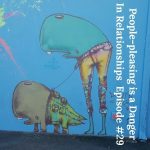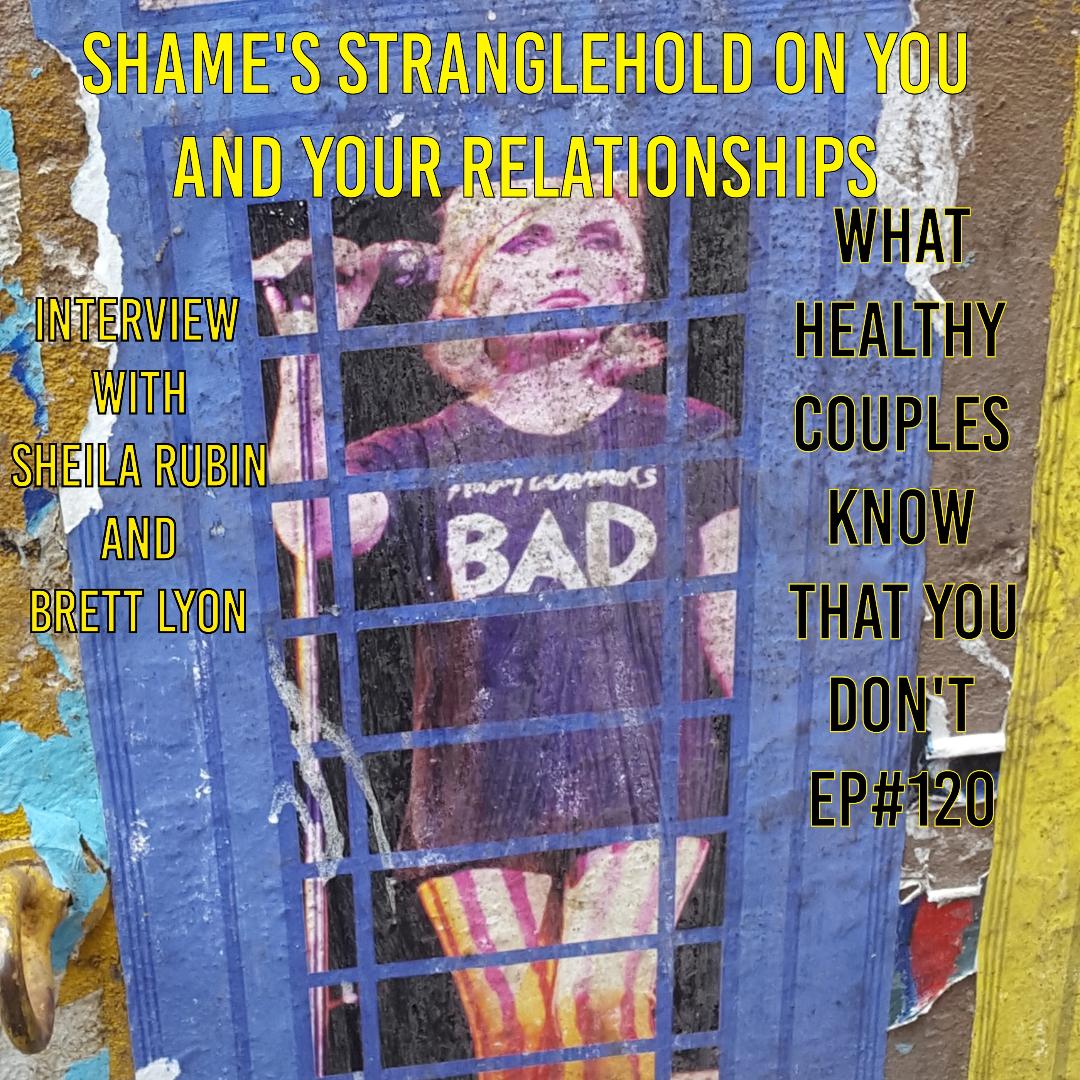
Share the Love & Spread the Word
PLEASE Tweet or SHARE on Facebook (sooooo helpful)
Subscribe on Apple Podcasts: HERE
or Sticher: (HERE for androids) & please leave a review. THANKS!!!!!
Episode #29 People-pleasers are a Danger in Relationships
People-pleasers have both and strengths and weaknesses when it plays out in relationships. Who doesn’t love being with someone who goes along to get along? Negotiation requires giving up some of what you want.Everyone wants to be liked & people-pleasing helps that to happen.
What is crucial is understanding when you are too lopsided in people-pleasing which leads to erasing too much of who you are and what you want.
Consider the Benedict Cumberbatch versions of Sherlock Holmes or the CBS version. When Watson agrees too much with Sherlock it can be annoying. It is their respectful disagreement that makes the show and the relationship more interesting.
People-pleasers go along with someone else’s agenda over and over and over again, allowing the other person to take up all the space and not taking responsibility for being clear about who you are and what you want.
People-pleasers silently build up of resentments. Ask yourself if you ask for what you want and do you ask your partner to factor both of you into the equation. If you silently expect your partner to know what you want and they don’t, do you then silently add it to your hoarded stash of resentments? Resentments that are piled up over time are dangerous to relationships as they wreck the trust one partner has in the other, often without the partner having a clue.
What inspired me to write this script was a book review in the New York Times (12/19/16) of John Nixon’s book “Debriefing the President: The Interrogation of Saddam Hussein” in which according to this review the book is “a staggering indictment” of the CIA and it’s dysfunctional process for providing briefing intelligence to the President. Nixon writes that the agency is so eager to please the President – any President – that it almost always gives the White House the answers they hope to hear. It doesn’t take a lot of imagination to understand how getting jaundiced intelligence data could easily misrepresent the facts and lead to faulty conclusions in decision making.
The higher moral imperative in any important relationship, is the truth. Truth appears to be vanishing in our culture of fake news. Which makes truth in your relationship all that more important. So how does someone who tends to be a people-pleaser emerge from that protective cocoon?
People-pleasers must begin by NOT hiding out by asking questions. Asking questions becomes a way to avoid stating your own desires specifically & it is a way of getting a handle on which way the other person is headed.Do you want to step out of the safety & security of questions? What would be the opposite???
Making More Statements
People-pleasers must find the courage to define what’s important. Value your truths, finding a way to state them out loud, getting them into the conversation, which will add authenticity to your relationships and makes them more interesting. It adds spice to a stew that can so easily become bland over time. Give up the idea that it’s a good thing to be continually suppressing yourself, decide to risk disagreement to insure your that your own voice is part of the process. This doesn’t mean that two people can always come to a shared conclusion that is satisfactory but what it does mean that two people always feel heard.
Certainly there is a good percentage of the population who need to learn some more people-pleasing skills. Those are the people who need to learn to ask more questions and not fill up so much space by demanding that their self-absorbed points of view be attended to as if none others really exist. They need to practice drawing their partners out. In my practice I often find that people-pleasers often find partners who are their opposites; the partner’s energy to be too certain about what they want fills a void in their own personalities.
We all require more range, more balance, more wholeness to who we are. That’s why opposite energies often attract each other, we are drawn to them because their energy fills our own void. Over time however, the people-pleaser resents the partner and need to learn how to balance the equation for themselves. At the end of the day all relationships should help us grow and become more rounded and become better people.
Relationships by their nature are messy. Long term relationships survive by each person learning how to cope with the messiness instead of avoiding it. Constantly fighting is not healthy any more than constantly going along with the other person is. Success comes from a balance of both person’s truths so that the relationship is a blend of the two. As long as both partners have a say in the relationship, resentments are minimized and the fundamental structure of a healthy relationship stays whole & can grow.
If you’ve watched “The Danish Girl” you witnessed her dealing with the reality of being a transgendered person. Of course it was a struggle to overcome the confusion, the awkwardness and the messiness but they had the courage to face the truth and deal with it. For most all of us, any struggle we may have pales in comparison, we can only admire and learn from the courage shown on the screen.
It’s being choiceful about when to use the skill of people-pleasing and when not to that contributes to your mental health. Those with the habit of constantly people-pleasing need to recognize that it’s a problem.
Pearl Buck put it this way: “The truth is always exciting, Speak it, then. Life is dull without it.”
My challenge to you today is to stop and consider how self aware you are. Are you lopsided with too much people-pleasing? Do you take up too little space in your relationships? If so, then spend the next week making more statements about what you want.
Or are you lopsided with too much self-absorption to factor in anyone else in your decision making? If so, spend the next week asking more questions and observe yourself when dealing with other people, stop yourself from taking up too much space and encourage them to fill the void.
Or do you already have a healthy balance of both energies? Do you think you’ve grown more whole from loving someone else?
This is Keeping it Real with Rhoda. I appreciate your taking the time to listen today and invite you to return for my next episode, The Danger of Living with Contempt.













